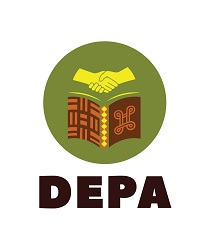The study was conducted across five provinces in Algeria in May 2023. These included three Northern Algerian provinces: Béjaïa, which has a majority of Kabyles – an Amazigh-speaking community; Oum El-Bouaghi, predominantly a Chaouia-Shawiyyah-Amazigh speaking community; and Guelma, which mainly comprises Arabic-speaking individuals of mixed ethnic heritage. The study also extended to two provinces in Southern Algeria: Ghardaïa, home to the Mozabites-Amazigh and Shaanbeh-Arab communities, and Tamanrasset, inhabited by the Tuareg-Amazigh-speaking community.
Four individual participants from these linguistic communities, who migrated to other cities within Algeria, also took part in the research. The selection of participants and provinces was based on accessibility and the enrichment they could provide regarding the local art heritage related to educating for peace in their communities.
To capture the complex relationships of educating for peace across multiple levels - individual, interpersonal, community, national, international, and global - this study adopts Recep Şentürk’s multiplexity framework. This framework was chosen due to its ability to encompass the multifaceted ontological, epistemological, and methodological nuances of examining such a social phenomenon while accounting for its interconnectedness across vertical and horizontal dimensions.
The research methods employed to address this study’s research question were:
In-person, one-on-one, in-depth interviews with elders, community members, artists, educators from both lower and higher education sectors, and mosque imams.
Jama'ah group (JG) discussions (the assembly or traditional gathering): Functioning similar to focus groups, these discussions held respect for local customs, values, and sensitivities. The format and etiquette of these sessions were tailored to the community's traditions. Each group consisted of 4-7 people. The lead and etiquette of these discussions were tailored to respect local customs, values, and sensitivities.
Both the individual interviews and JG discussions emphasized the Algerian art heritage as an educational tool for peace. Traditional stories, medihs (traditional melodies), amthal (proverbs), and traditional art objects were used to stimulate further in-depth discussions around peace values within their communities.
In terms of data collection, based on the participants' informed consent, either audio or video was recorded. All participants underwent a thorough informed consent process, ensuring they fully understood the research objectives, their role in it, and the potential use of their data. Data formats included:
- Digital audio recordings of interviews.
- Textual transcriptions of individual interviews and group discussions.
- Digital video recordings for those consenting to video, capturing their oral presentations and custom traditions.
- Digital still images of any art objects subjects chose to share.
- Field notes taken by the researcher.

